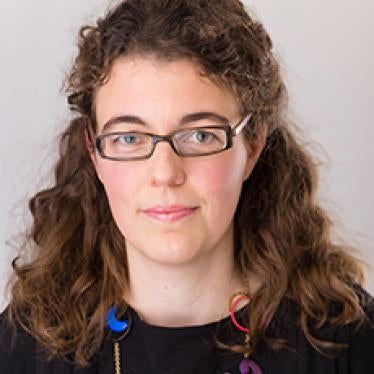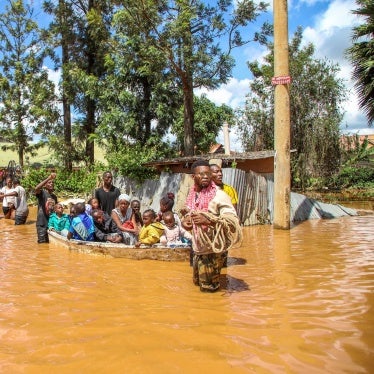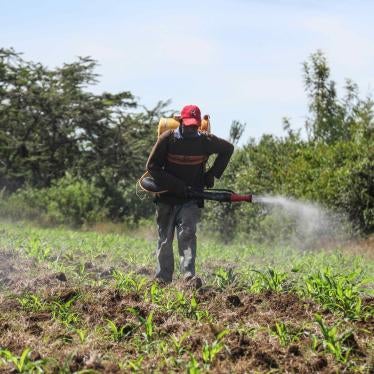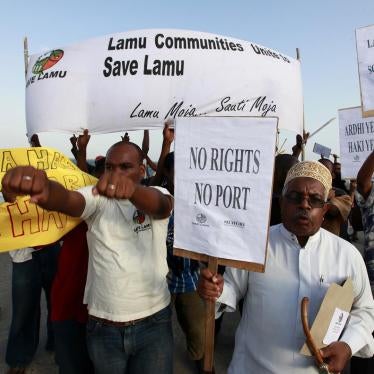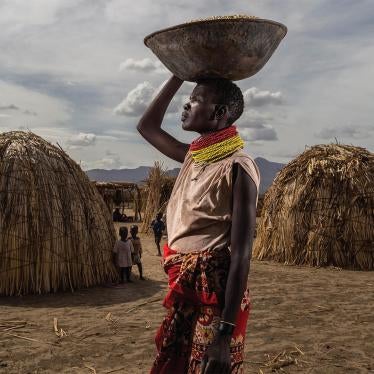As delegates converge on Paris in November for the UN Climate Change Conference, the urgency of the need to address the human rights impacts of climate change is clear: the world’s marginalized communities—populations that are already vulnerable to human rights abuses—face the biggest challenges in adapting to climate change. The consequences of climate change for health, housing, livelihood and security will disproportionately impact individuals and communities living in already-fragile ecosystems or with tenuous land title, and especially indigenous communities, women, elderly individuals, those with disabilities, and the poor. To better appreciate how drastically climate change will, and currently is, affecting the world’s most marginalized people, it is helpful to look at a specific context.
Turkana County, Kenya, near the border with Ethiopia, is known as the cradle of humankind: in and around this area, archeologists have found the oldest ancestors to modern humans, dating back more than one million years. Today, it is one of Kenya’s poorest regions, battered by conflict and crippled by drought. A majority of the Turkana people, an indigenous community dependent on herding and fishing, rely on unimproved water sources for drinking and fewer than 10% have access to improved sanitation facilities. Turkana County has a long history of chronic malnutrition and some of the poorest health indicators in Kenya, with minimal health investment or infrastructure, staff or services.
Climate change, along with environmental threats from industrial developments in Ethiopia, is now exacerbating this already precarious situation.
Data collected by a local weather station in Turkana’s capital indicates that temperatures have increased by 2 to 3°C (3.6 to 5.4°F) between 1967 and 2012. Rainfall patterns seem to have changed and communities report longer and more severe droughts. Women and girls must walk longer distances to dig for water in dry riverbeds. There is more competition over diminishing grazing lands for herds, and animals are less healthy and dying.
The realization of the Turkana people’s rights to health, in addition to other related rights to water, security, food and livelihood, are being further complicated by the impacts of climate change and other environmental threats. Children become sick because their parents are unable to provide them with sufficient food and safe water for drinking and hygiene. They suffer from stomach aches, diarrhea, malaria, malnutrition and trachoma, which their parents claim have worsened with recent droughts. A teacher in Turkana County described these difficulties: “Truthfully, health cases increase daily. For instance, we had drought so the children were hungry and this hurt them. When it rained, there was the problem of mosquitos because mosquitos spread malaria. There is the problem of the river. The water that came recently, when the children drink from it, their chest problems increase. Problems increase every season.” Turkana people are being forced into a dangerous situation where their health and livelihoods are at stake. Ongoing and projected changes in climate will very likely make full realization of the Turkana people’s right to the highest attainable standard of health much more difficult.
The fate of the Turkana people in Kenya illustrates the impact that climate change is already having on marginalized people, particularly in countries with limited resources and fragile ecosystems. While governments around the world have recognized the impact of climate change on human livelihoods, it is time to move from words to action. Including attention to human rights in the response to climate change can help encourage accountability and attention to people who are disproportionately affected. It can also reinforce the importance of including these populations in finding valuable strategies to adapt to the effects of climate change. Human rights need to be a centerpiece of any international agreement on climate change.
